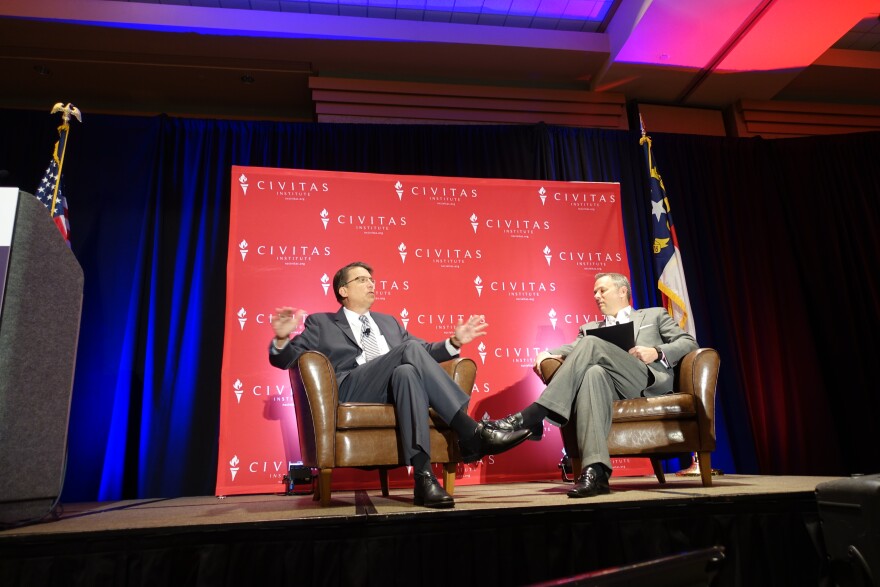Voters in North Carolina’s primary election this month will decide on a state plan to borrow $2 billion in bonds for investment in building and renovation projects. Gov. Pat McCrory in early 2015 asked legislators to put the plan on the ballot. The General Assembly approved a version of his proposal later in the year.
What’s the plan?
Money from the sale of state bonds is outlined for four general areas: new buildings and renovations at public universities and colleges, buildings and improvements at state park facilities, building and improving water and sewer systems, and upgrading N.C. National Guard facilities.
How was it put together?
McCrory, a Republican, asked the General Assembly in February 2015 to ask voters to issue more than $2 billion in bonds aimed at funding transportation and higher education construction projects. He asked the Republican-led General Assembly to move hastily to take advantage of low interest rates set by the Federal Reserve System. In August, the General Assembly agreed to put the question to voters in the March 2016 primary. Notably, the new plan does not including funding for transportation projects.
Who’s supporting?
More than 450 politicians, educators, representatives of business and others turned out for an event in early January to launch an independent marketing campaign to convince voters to approve the plan. Political supporters include top Republicans such as Senate President Pro Tem Phil Berger; House Speaker Tim Moore and Democrats such as Senate Minority Leader Dan Blue and Superintendent of Public Instruction June Atkinson. Business leaders supporting it include Bob Brown, head of B&C International in High Point; Fred Eshelman, head of PPD in Wilmington and Ann Goodnight of SAS Institute in Cary.
What’s their argument?
Supporters say money raised through the sale of bonds will pay for long-needed projects the state will benefit from over decades. “It is the fiscally conservative thing to do,” says Art Pope, an influential Republican Raleigh businessman and former state budget director. “You would not spend all your money in one check buying your home. You take out a mortgage.”
Is there an argument against?
Yes. A handful of Democrats and Libertarian-leaning Republican members of the House of Representatives vigorously opposed the plan when it was being vetted. They questioned whether some of the projects were necessary investments and said government should pay for projects in cash, instead of taking on debt. A handful of county-level Republican and Tea Party groups have opposed it. Nicole Revels, a 29-year-old single mother from Caldwell County, started a website called againstthebond.com. “I think these items if they're truly important, they need to go before legislators so that they have specific details, and so that voters have accountability of how our voters' tax dollars are being spent,” Revels said.
How likely is it that voters will approve the plan?
Very. The last bond referendum, held in 2000, was approved by a rate of 70 percent. And recent polls by High Point University and the conservative Civitas Institute have found that roughly two-thirds of likely voters approve the new plan.







